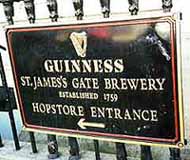A Washington, D.C., restaurant has begun selling “beer pops” – but Virginia authorities say that’s against the law.
Rustico, located in Alexandria, sells three flavors of beer pops for $4 in the six-ounce size, shaped like a traditional Popsicle, and $6 for a larger “beer cone.”
The company put out a press release, and an Associated Press reporter placed a call to the Virginia Department of Alcoholic Beverage Control, asking whether a frozen beer would pose any regulatory problems.
Philip Disharoon, special agent in charge of the Alexandria division of the Virginia ABC, said beer must be served in its original container, or served immediately to a customer once it is poured from its original container.
“If we’re talking about taking a beer and pouring it from a bottle or a keg into some sort of mold and freezing it, then that product is not legal,” Disharoon said. He planned to send an agent to investigate.
A spokewoman for the restaurant said they were confident they could find a way to comply with Virginia regulations, and planned to keep selling the beer pops.

 Might Guinness close its St. James’s Gate brewery, where the famous stout was first brewed in 1759?
Might Guinness close its St. James’s Gate brewery, where the famous stout was first brewed in 1759? The Support Your Local Breweries web site has issued a
The Support Your Local Breweries web site has issued a